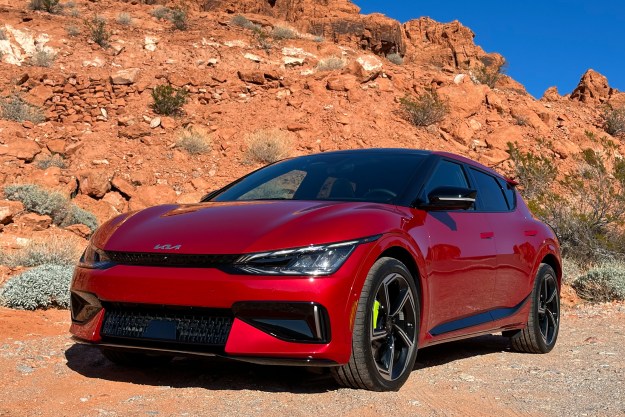 Honda will start selling an electric vehicle as well as a plug-in hybrid in 2012 in the U.S. and Japan, joining the race to manufacture green cars in which rivals have already taken slight leads.
Honda will start selling an electric vehicle as well as a plug-in hybrid in 2012 in the U.S. and Japan, joining the race to manufacture green cars in which rivals have already taken slight leads.
The plans were disclosed by Honda Motor Co. President Takanobu Ito at the Japanese automaker’s facility in a Tokyo suburb Tuesday.
“Honda has no future unless we achieve significant reduction in CO2 emissions,” he told reporters. “The next 10 years will be a true test for Honda’s survival.”
Coming up with good cars quickly and at affordable prices is now crucial to score success in changing times, he said.
He also said the world’s needs were shifting to small and green vehicles.
Ito declined to give details of the vehicles, including the batteries — the key component — they would use, but said green technology was becoming increasingly important in the auto industry.
Tokyo-based Honda, Japan’s No. 2 automaker, now makes the Insight and CR-Z hybrids but has not given concrete plans for a plug-in or EV previously.
Under its new strategy, Honda will resume preparations for its Yorii plant in Saitama Prefecture near Tokyo to begin production in 2013 and focus on green models.
Honda dropped a previous plan to build a new plant in Yokkaichi, Mie Prefecture, central Japan, it said.
Ito denied Honda was ever disinterested in electric vehicles as was the impression among some analysts and media reports.
Japanese rival Nissan Motor Co. has already begun taking orders for its Leaf electric car, which is set to arrive in Japan and the U.S. later this year. Toyota Motor Corp. is also planning an electric vehicle model for 2012.
Mitsubishi Motors Corp. began selling its mass-produced electric vehicle, the iMiEV, earlier this year.
The Japanese aren’t the only ones planning EVs, with American, Chinese and other global makers also developing electric vehicles.
Toyota announced earlier this month it is working with U.S. electric vehicle upstart Tesla Motors Inc. to develop an electric version of Toyota’s RAV4 small crossover vehicle, with plans to begin selling it in the U.S. in 2012.
Ito also said Honda, which also makes the Asimo walking childlike robot, will beef up its lineup of gasoline-electric hybrid models, while declining to give details.
Within the next year, Honda will introduce several hybrid models, mainly small models, including the Fit hybrid set to go on sale later this year in Japan, he said.
Honda has decided to focus on emerging markets such as India, China, Indonesia and Africa to boost growth while not being as aggressive as in the past on expanding Japan production, which will focus on advanced technology, said Ito.
Emerging markets still hold potential for tremendous growth while the Japanese market has been stagnant for years and cannot hope to recover unless North American demand recuperates, Honda officials said.
Editors' Recommendations
- Fake engine noises in electric cars need to die
- Honda’s electric SUV is coming soon. Here’s what we know about the 2024 Prologue
- Lucid joins other automakers by adopting Tesla charging plug
- The fastest electric cars, ranked by 0-60 mph acceleration
- The best electric cars you can buy in 2023


